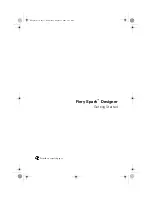
Definitions and Records
Data Definition Language (DDL) Reference Manual — 426798-002
5- 15
File-Creation Syntax
{ KEY-SEQUENCED | RELATIVE | ENTRY-SEQUENCED | UNSTRUCTURED }
specifies an Enscribe file type. The first three specify structured files that can have
keys. For a description of file types, see the Enscribe Programmer’s Guide. If the
file type is omitted, DDL assigns a default file type, as explained under
File
Creation Guidelines
on page 5-22.
AUDIT
causes DDL to specify AUDIT when creating FUP source. AUDIT designates the
file as audited by the TMF.
AUDITCOMPRESS
specifies that the audit trail for a file be compressed. The audit trail consists of
before-images and after-images of the database.
BLOCK { block-length | constant-name }
specifies the block size, in bytes, for both data and index blocks in a structured file.
The default block size for DDL is 4,096 bytes.
block-length
is an integer whose value is 512, 1,024, 2,048, or 4,096.
constant-name
is the name of a constant in the open DDL dictionary. The constant value must
be a valid block-length value.
[ NO ] BUFFERED
sets the mode of handling write requests. If you specify BUFFERED, then write
requests to your file are buffered in the disk-process cache. If you specify NO
BUFFERED, writes to your file go through to the disk at each request.
The default value is BUFFERED for audited files, NO BUFFERED for other files.
BUFFERSIZE {
buffer-size | constant-name }
specifies the buffer size, in bytes, for an unstructured file. The default value for
BUFFERSIZE is 4,096 bytes.
buffer-size
is an integer whose value is 512, 1,024, 2,048, or 4,096.
constant-name
is the name of a constant in the open DDL dictionary. The constant value must
be a valid buffer-size value.
















































